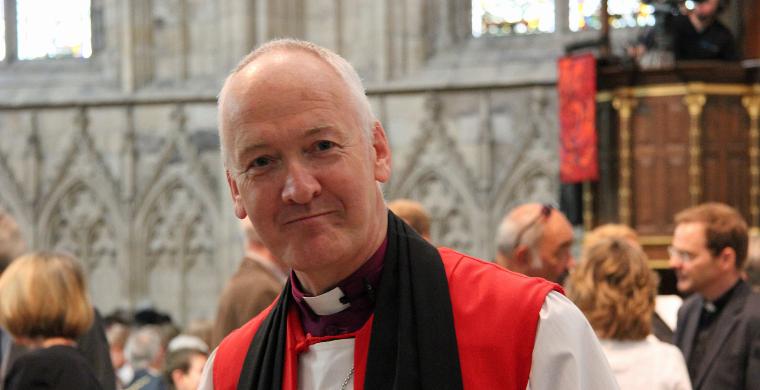Bishop of Leeds Urges British Prime Minister to Act on Religious Freedom in Middle East Crisis
Open Letter scores UK Govt. for reactive not proactive manner in dealing with Islamic extremists
By the Rt. Rev. Nick Baines
August 17, 2104
Recognizing the complexities of such matters and the difficult role of the Prime Minister in them, I wrote the letter as a constructive stimulus to discussion of the wider questions provoked by what is happening in Iraq, Syria and elsewhere. Attempting to fix the immediate will prove costly in every respect, if we don't have a long-term, overarching and holistic vision for what we – along with other governments, agencies and partners (such as the churches) – need to achieve. The lack of clarity about such a comprehensive and coherent vision is being commonly remarked upon, and my letter seeks concisely and respectfully to elicit some response to these serious questions.
Dear Prime Minister,
Iraq and IS
I am conscious of the speed at which events are moving in Iraq and Syria, and write recognizing the complexity and interconnectedness of the challenges faced by the international community in responding to the crises in Syria and Iraq.
However, in common with many bishops and other correspondents here in the UK, I remain very concerned about the Government’s response to several issues. I write with the support of the Archbishop of Canterbury to put these questions to you.
1. It appears that, in common with the United States and other partners, the UK is responding to events in a reactive way, and it is difficult to discern the strategic intentions behind this approach. Please can you tell me what is the overall strategy that holds together the UK Government’s response to both the humanitarian situation and what IS is actually doing in Syria and Iraq? Behind this question is the serious concern that we do not seem to have a coherent or comprehensive approach to Islamist extremism as it is developing across the globe. Islamic State, Boko Haram and other groups represent particular manifestations of a global phenomenon, and it is not clear what our broader global strategy is – particularly insofar as the military, political, economic and humanitarian demands interconnect. The Church internationally must be a primary partner in addressing this complexity.
2. The focus by both politicians and media on the plight of the Yezidis has been notable and admirable. However, there has been increasing silence about the plight of tens of thousands of Christians who have been displaced, driven from cities and homelands, and who face a bleak future. Despite appalling persecution, they seem to have fallen from consciousness, and I wonder why. Does your Government have a coherent response to the plight of these huge numbers of Christians whose plight appears to be less regarded than that of others? Or are we simply reacting to the loudest media voice at any particular time?
3. As yet, there appears to have been no response to pleas for asylum provision to be made for those Christians (and other minorities) needing sanctuary from Iraq in the UK. I recognise that we do not wish to encourage Christians or other displaced and suffering people to leave their homeland – the consequences for those cultures and nations would be extremely detrimental at every level – but for some of them this will be the only recourse. The French and German governments have already made provision, but there has so far been only silence from the UK Government. Therefore, I ask for a response to the question of whether there is any intention to offer asylum to Iraqi migrants (as part of a holistic strategy to addressing the challenges of Iraq)?
4. Following on from this, I note that the Bishop of Coventry tabled a series of questions to HM Government in the House of Lords on Monday 28 July. All but two were answered on Monday 11 August. The outstanding questions included the following: “The Lord Bishop of Coventry to ask Her Majesty’s Government what consideration they have given to resettling here in the UK a fair proportion of those displaced from ISIS controlled areas of Northern Iraq.” I would be grateful to know why this question has not so far been answered – something that causes me and colleagues some concern.
5. Underlying these concerns is the need for reassurance that a commitment to religious freedom will remain a priority for the Government, given the departure of ministers who championed this. Will the Foreign Secretary's Human Rights Advisory Panel continue under the new Foreign Secretary? Is this not the time to appoint an Ambassador at Large for International Religious Freedom – which would demonstrate the Government’s serious commitment to developing an overarching strategy (backed by expertise) against Islamist extremism and violence?.
I look forward to your considered response to these pressing questions.
Yours sincerely,
The Rt Revd Nicholas Baines (The Bishop of Leeds)














